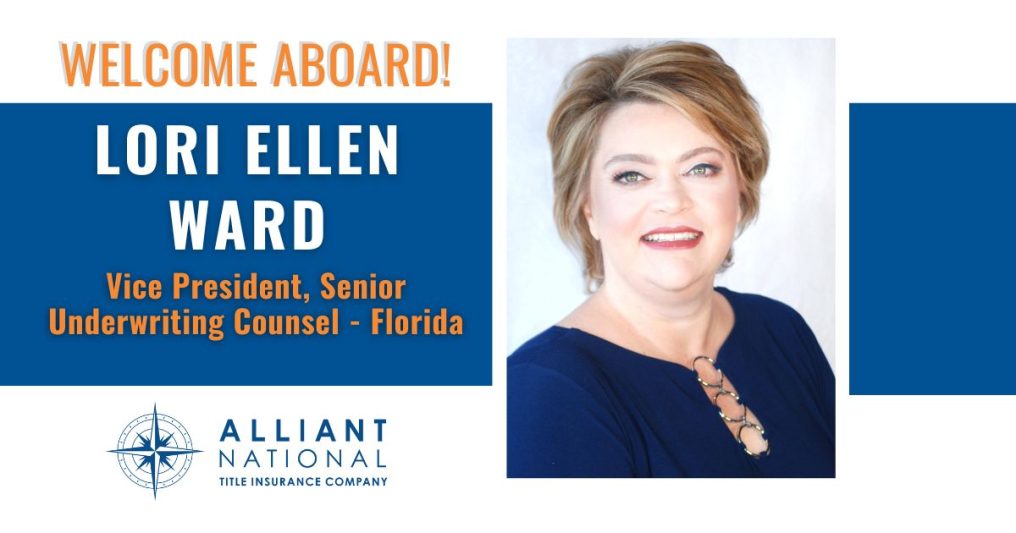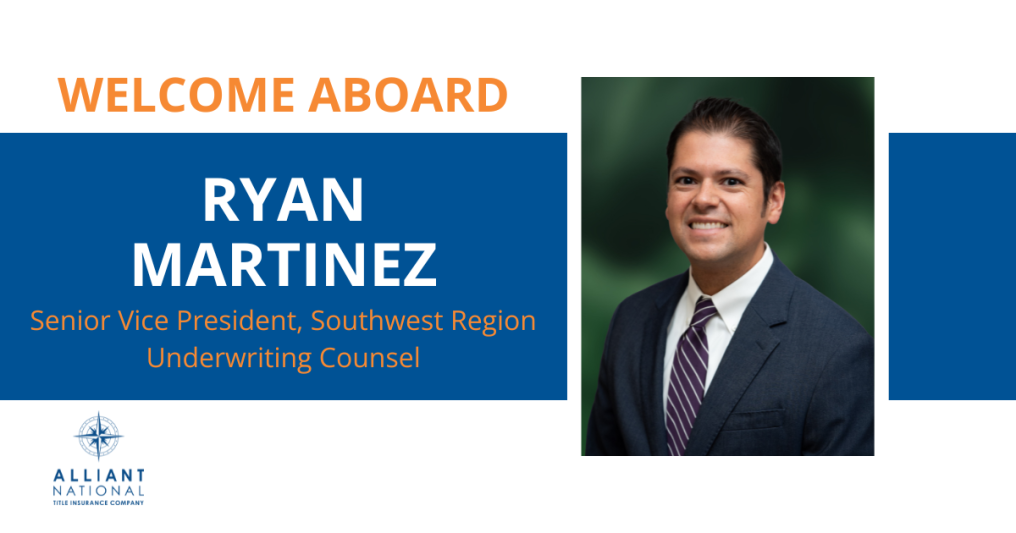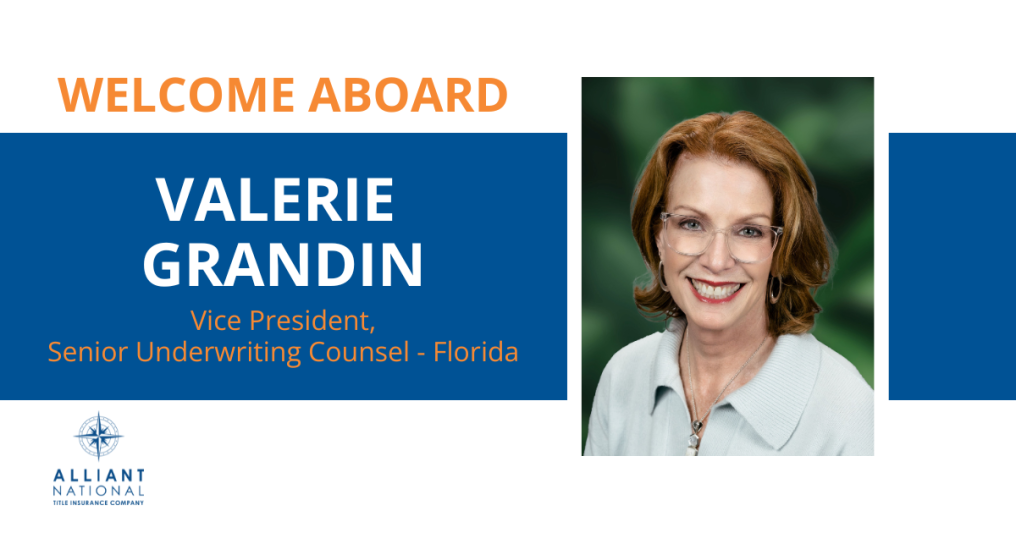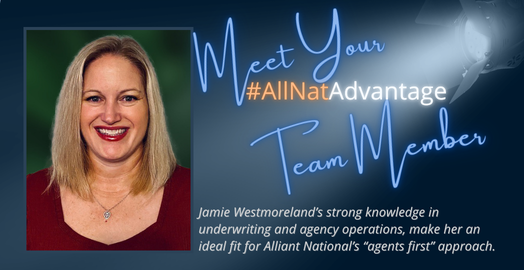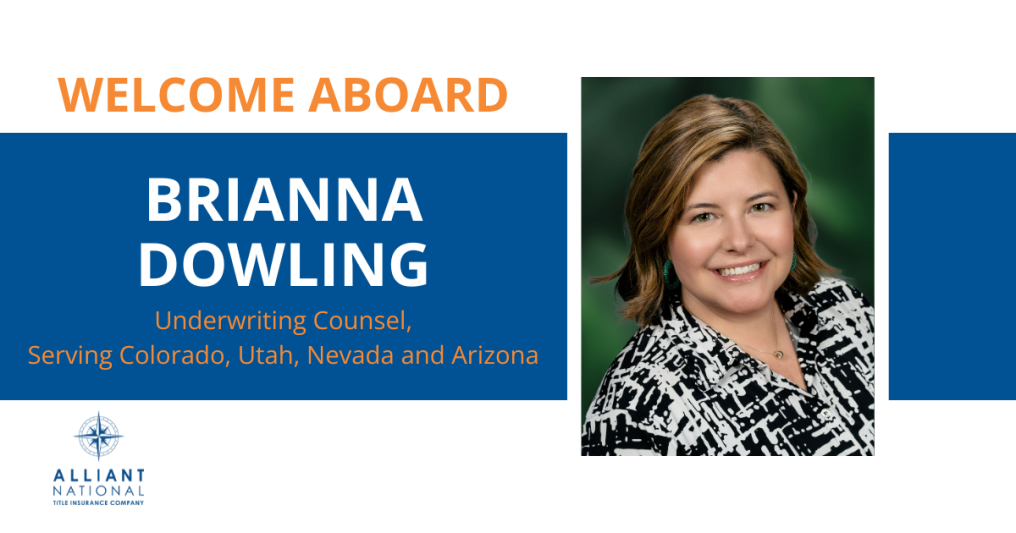Hansen’s hiring further deepens Alliant National’s already strong underwriting capabilities in the region Longmont, CO — (May 15, 2025) — Alliant National Title Insurance Company, the title insurer that is uniquely responsive to the needs of independent agents, is happy to announce that it has added Jodi Hansen to its Florida underwriting team. Hansen brings extensive experience to Alliant National, …
Alliant National Welcomes Lori Ellen Ward as Underwriting Counsel, Florida Region
With nearly three decades “in the trenches” as a title agent, Lori will apply her expertise to empower the underwriter’s independent agents throughout Florida. Longmont, CO — (March 21, 2025) — Alliant National Title Insurance Company, the title insurer that is uniquely responsive to the needs of independent agents, is pleased to announce that it has hired Lori Ellen Ward as …
Alliant National Hires Ryan Martinez As Vice President, Southeast Regional Underwriting Counsel
Martinez will help shape Alliant National’s underwriting operations throughout the Southeast and provide invaluable support to its policy-issuing agents. Longmont, CO — (October 22, 2024) — Alliant National Title Insurance Company, the title insurer that is uniquely responsive to the needs of independent agents, is pleased to announce the hiring of Ryan Martinez as Vice President, Southeast Regional Underwriting Counsel. Martinez …
Valerie Grandin Joins Alliant National as VP, Senior Underwriting Counsel Florida
Longmont, CO — (October 16, 2024) — Alliant National Title Insurance Company, the title insurer that is uniquely responsive to the needs of independent agents, is excited to announce that it has hired Valerie Grandin as Vice President, Senior Underwriting Counsel Florida. Grandin brings with her a wealth of experience in title insurance, real estate, management and business strategy. She comes …
Alliant National is Excited to Welcome Jamie Westmoreland!
Westmoreland joins the team as Underwriting Counsel for the Southwest Region. Alliant National is excited to announce Jamie Westmoreland has been hired as Underwriting Counsel for the Southwest Region. With extensive experience in the title insurance industry stretching back well over a decade, Westmoreland is a valuable addition to the team. She will play a pivotal role in supporting Alliant …
Alliant National Welcomes Brianna Dowling as Underwriting Counsel
Dowling will provide underwriting support to the company’s agents throughout the Central West region. Longmont, CO — (April 11, 2024) — Alliant National Title Insurance Company, the title insurer that is uniquely responsive to the needs of independent agents, is excited to welcome Brianna Dowling as Underwriting Counsel serving Colorado, Utah, Nevada and Arizona. Dowling comes to Alliant National after a …


